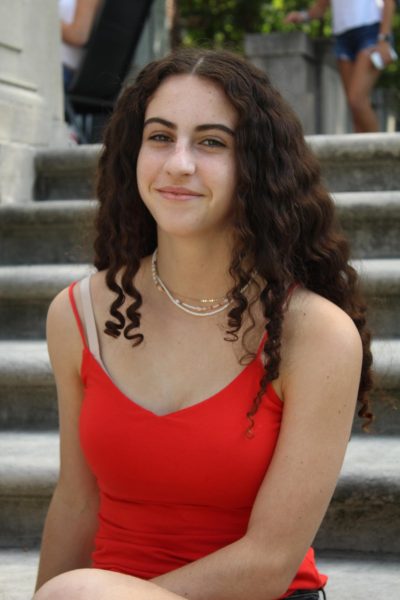With unwavering determination, the Upper School athletes brought another successful Potomac Valley Athletics Conference (PVAC) season to WIS. Exemplifying true sportsmanship and talent across the board, the Boys Volleyball, Boys Tennis and Coed Track and Field competed with success.
While the volleyball team secured the tournament championship, the tennis team earned second place in the PVAC tournament, losing to St. Anselm’s Abbey School. The female Track and Field athletes took second place in the championship ahead of Edmund Burke School and The Field School, while the boys team placed ninth overall.
For the first time in WIS athletic history, the Boys Varsity Volleyball team won the PVAC championship with the help of coach Jon Tang, who has finished his third season as the WIS volleyball coach.
Athletic Director Floreal Pedrazo acknowledges that communication and clarity is valued highly in the athletic department.
“What helps is we are more transparent on what we do in athletics,” Pedrazo said. “With season schedules already planned out, athletes know what to expect ahead of time when joining sports teams.
Tang acknowledged that this spring season was very successful compared to previous years. The boys team had quite a turnaround from last spring as they achieved an impressive win against the Jewish Day School, recovering from a 0-2 score to a triumphant 3-2 victory.
“It’s nearly unheard of for a team to go 2-7 and then the following season win the conference championship,” Tang said.
Despite their differences, one connection between all three sports is the strong sense of community they build. “[My goal was to] develop a sense of community in the context of a competitive sport,” tennis coach and IB Economics teacher Guy Neal said.
Neal describes the challenges that exist when coaching a tennis team that is open for Middle School athletes all the way to seniors. The difficulty arises when an advanced sixth grader must be balanced with a ninth grader who is just beginning to develop their skills on the court.
“There’s the science of coaching as well as the art of coaching,” Neal said. “[The most difficult aspect of being a tennis coach is] putting the Lego pieces together,” he said.
While Neal ensures all athletes are given the opportunity to play on the court, Track and Field Coach and Upper School Math Teacher Gary Piligian emphasizes the range of diverse skills of the athletes on the team. Piligian has directed the team for three years, following three years as assistant coach.
“Track practice is hard because you’ve got so many events,” Piligian said. In addition to the traditional sprinters and long-distance runners, student-athletes compete in hurdles, shot put, discus, long jump, triple jump, and high jump.
The community fostered in the team is vibrant. Although track is generally scored individually, the coaches have made it a priority to push athletes to compete against the prior version of themselves.
Junior Juliette Bakker, finishing her third year on the track team, acknowledges the role the coaches play on the team.
“[The coaches] definitely push you, especially in practice,” Bakker said. “They sometimes sign you up for events you don’t want to do, but once you’ve done them you realize you actually really enjoy it or you discover you can do something new.”
As the only coed team at WIS, all athletes are able to practice together, an admirable quality in which Piligian credits to the unity.
“It builds cohesion,” he said “It’s a different competitive dynamic than if it was just all males and females.”
According to Bakker, what sets the WIS track team apart from others is its diversity of talents. Despite the limited number of athletes on the team, WIS can present a united front.
“Everyone should try track,” Bakker said. “There’s definitely a place for everyone.”
Reflecting on the last spring season, Pedrazo hopes to see more people cheering on the teams next year. Compared to other sports, namely soccer, the spring sports fail to receive the attention of the WIS community, despite their many successes.
“Soccer is its own little bubble,” Pedrazo said. “Everyone loves soccer.” The next step is to provide the same level of support to sports like tennis, volleyball and track and field as they continue with another successful season.
By Olivia Mandelbaum Raz



































































